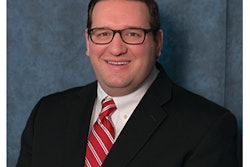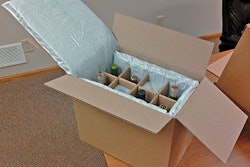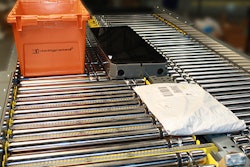March 23--TAMPA -- The largest port in Florida has a new name this year, and an aggressive growth plan.
Officials with the newly christened Port Tampa Bay want it to become a bigger player in the global cargo business, especially when it comes to the shipping of consumer goods. Port leaders say the coming years will be marked by expansion, infrastructure improvements and new ventures, with Polk County expected to play a role.
"We are putting ourselves -- our community -- in a position now to reap the rewards of a more regionalized and diversified port in the future," said Paul Anderson, chief executive of the Tampa Port Authority, during his State of the Port address in January.
"The moves we are making now -- in infrastructure and capacity -- will help us compete not just with ports in our region of the country but with those around the world. We will be competing on the global stage."
Port Tampa Bay is the state's largest port, by tonnage, handling some 35 million tons of cargo in fiscal year 2013. It is a major conduit for phosphate, petroleum products, building materials and cruise ship traffic, but the port is a relatively minor player in the world of container cargo -- the large steel boxes used to transport goods like furniture, food and clothing.
"Traditionally we weren't even in the game," said Wade Elliott, the Port Authority's vice president of marketing and business development. "We are a relatively new container port. We've only had proper facilities in place for about six years. And so for too long that business was being trucked into our region because there wasn't any other choice."
Container shipping represents a huge opportunity for the port, Elliott says, especially because of its proximity to Polk County's massive warehousing and distribution industry. It has not gone unnoticed that Amazon chose Lakeland for one of its first two fulfillment centers in Florida, and O'Reilly Auto Parts -- the nation's second largest auto parts retailer -- opened a Lakeland distribution center in January.
"These all point to our region becoming an important logistics and distribution hub," Elliott said. "As we're traveling throughout Asia or Europe or Latin America, we're not just selling Port Tampa Bay, we're selling the export/import capabilities of our entire region, and a big portion of that is Polk County."
Elliott is hopeful the port will be able to capture more container business from existing firms in the Polk County area. Seffner-based Rooms To Go, which has about 2 million square feet of distribution space in Lakeland, imports up to 30,000 containers of furniture per year, but less than 10 percent of that moves through Tampa, according to President Stephen Buckley. Instead, the company spreads its business across ports in Savannah, Jacksonville, Miami, Charleston and Houston.
"We would use (Port Tampa Bay) more if they had more shipping lines coming in," Buckley said. "Obviously it would be closer for us (to bring product through Tampa into Lakeland). It would cut our costs, and the logistics are just a lot easier."
Port Tampa Bay's container terminal sits on a 40 acre property, and there are plans to eventually quadruple its capacity, Elliott said. In October Gov. Rick Scott recommended a $35 million package (for this year's legislative session) to pay for upgrades at Florida's ports, including $10.4 million for improvements to Port Tampa Bay's container yard.
Elliott says the port also hopes to capitalize on the expansion of the Panama Canal -- scheduled for completion by late 2015 -- which will allow for the passage of larger cargo ships. The impact of the canal's expansion on Florida ports is still a matter of debate, but Elliott says Port Tampa Bay intends to add more cargo cranes and is working with port officials in Mobile, Ala., and Houston to market the Gulf of Mexico as a shipping destination.
"Most of the U.S. overseas trade traditionally hasn't moved through Gulf ports, it's moved by rail or truck connecting ports along the West coast and East coast," Elliott said.
"What we've done is come up with a very strategic approach to have the three ports collectively market ourselves. ... When we talk to the shipping companies, we say hey, 'You can start a service connecting China with the Gulf region through the Panama Canal, and you can do it with fewer ships and a much shorter itinerary.'"
Polk County has a long history with Port Tampa Bay. Phosphate mined in Polk has been a major export, and the phosphate fertilizer industry still accounts for roughly 35 percent of all cargo handled at the port, according to an economic impact study published last year. More than 3,500 Polk residents are employed in connection with phosphate cargo activity at the port.
Local businesses that use the port today include everything from Mulberry's W.S. Badcock Corp. to a host of East Polk citrus firms.
The Mosaic Co., which has significant phosphate operations in Polk, now owns a terminal at Port Tampa Bay through its just-completed acquisition of CF Industries.
Elliott says the recently opened Interstate 4/Selmon Expressway Connector road project should benefit Polk companies, as it includes exclusive truck lanes providing direct access to Port Tampa Bay.
"Traditionally the significant volume of truck movements that came in and out of the port had to wind their way through Ybor City, and it wasn't a very efficient way to get to their distribution centers in Polk County or throughout the region," Elliott said. "This significantly improves truck access."
Another development is last year's expansion of the Tampa-based U.S. foreign trade zone to include Polk County, making local businesses eligible for federal tariff breaks. In a free-trade area, companies can defer, reduce or even eliminate duties on products shipped into and out of the zone.
"The (trade zone) is really key to those high volume businesses that handle a lot of freight coming into and out of the port," said Spiros Balntas, senior project manager for the Central Florida Development Council, which is Polk's county-wide economic development agency. "That provides a lot of advantages for companies that are in distribution here."
Balntas said the CFDC plans to work with Polk firms to reap the benefits of the trade zone designation, and said it also might help as a recruiting tool for new businesses.
"We're closely monitoring all developments at the port and how that affects companies here in Polk County," he said. "Anything that helps to bring in additional volume or speeds up volume is important to our companies."
Copyright 2014 - The Ledger, Lakeland, Fla.

















